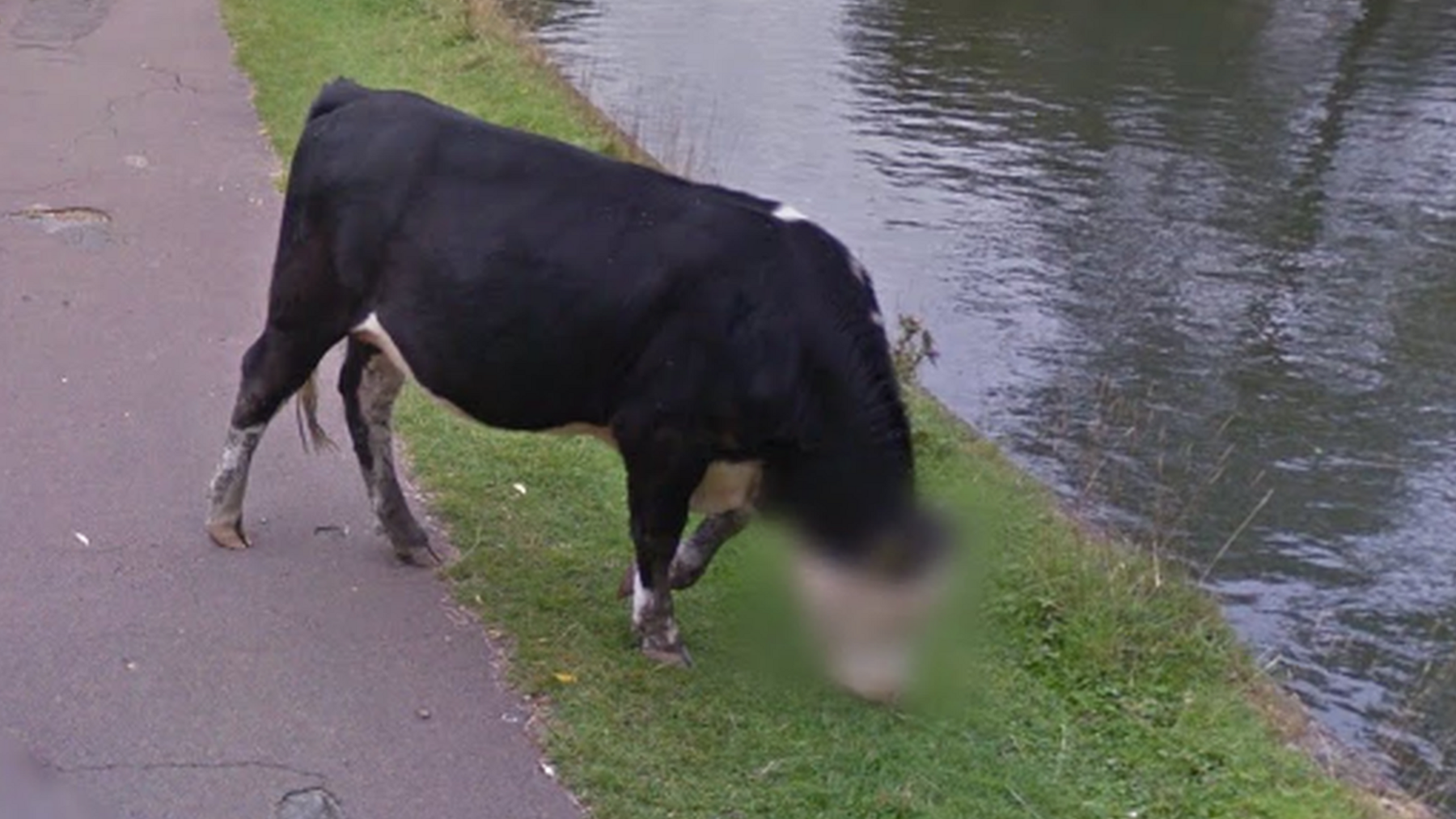Cambridge cows: Centuries-old city centre grazing 'in doubt'
- Published
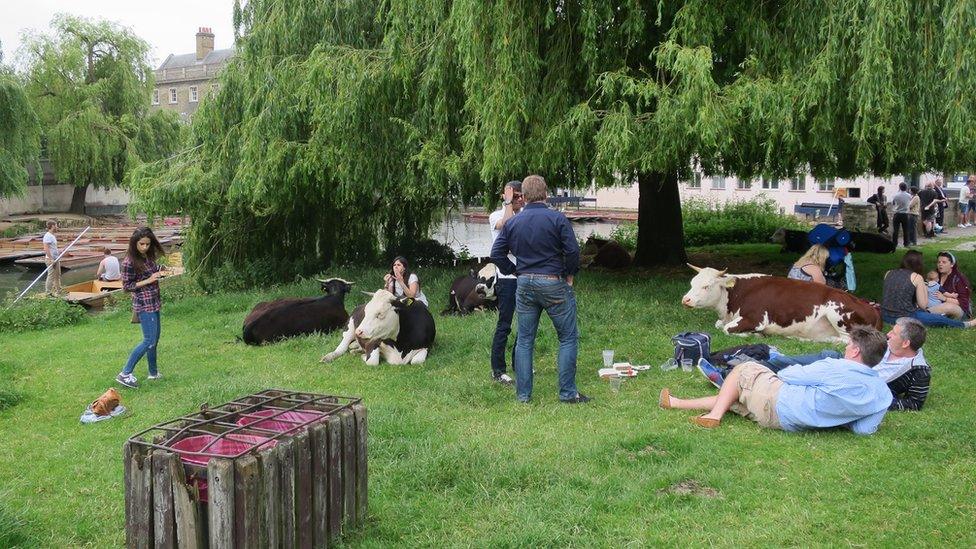
Cows are a regular feature of Cambridge's riverside commons, which extend into the heart of the city centre
The centuries-old sight of cattle roaming a city's commons could be put in doubt by new council plans, a farmer has warned.
Cambridge City Council has proposed an end to out-of-hours help for when there is an issue with the cattle.
Angelika von Heimendahl, whose cattle graze on one of the commons, said no graziers "can see how it would work" without the service in place.
A council spokesman said the authority would discuss the proposals this week.
Cows are a regular sight for locals and visitors in the university city, and a "pinder" service is used for when there is a problem with the cattle - such as when they fall into a river.
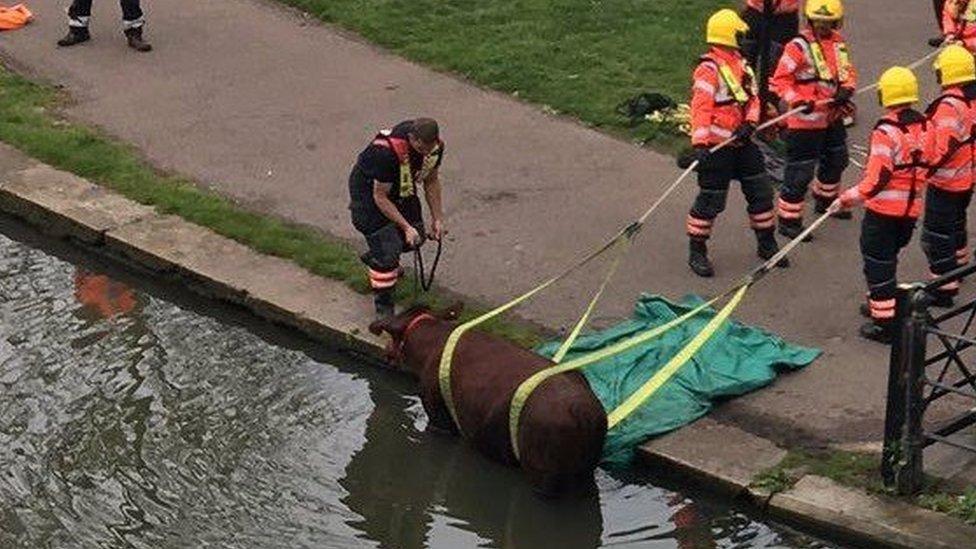
Fire crews had to rescue this animal from the River Cam at Midsummer Common in 2019
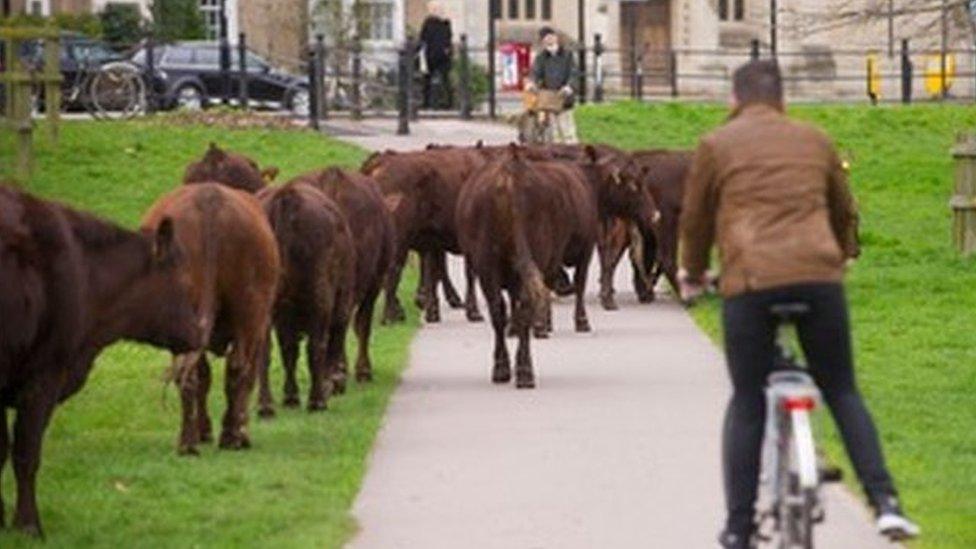
Mrs von Heimendahl grazes cattle on Midsummer Common
But Mrs von Heimendahl, who grazes cattle on Midsummer Common, said she had been informed of proposals that the service would now only be available in office hours.
The cost of the out-of-hours service is understood to be £8,000.
Mrs von Heimendahl said that graziers could not provide the service themselves.
"You would never be able to leave the house or go on holiday or to London at the weekend - you would only watch your phone to make sure that your cattle are OK," she said.
Cambridge City Council said it discussed the pinder service with graziers.
"All of those consulted broadly supported the proposal for animal owners to be responsible for responding to out-of-hours emergencies and where there are concerns about animal welfare," a spokesman said.
"Under proposals to be discussed by councillors this week, the council would continue to support graziers during council operational hours."
But Mrs von Heimendhal said she had contacted other graziers and "none of us have been consulted and none of us can see how it would work."
She said she felt the cattle had "always contributed to the feel of Cambridge" and that "people are amazed when they see them".
Without the service, she said she doubted graziers would "take that kind of responsibility and that kind of risk" to let their cows roam.
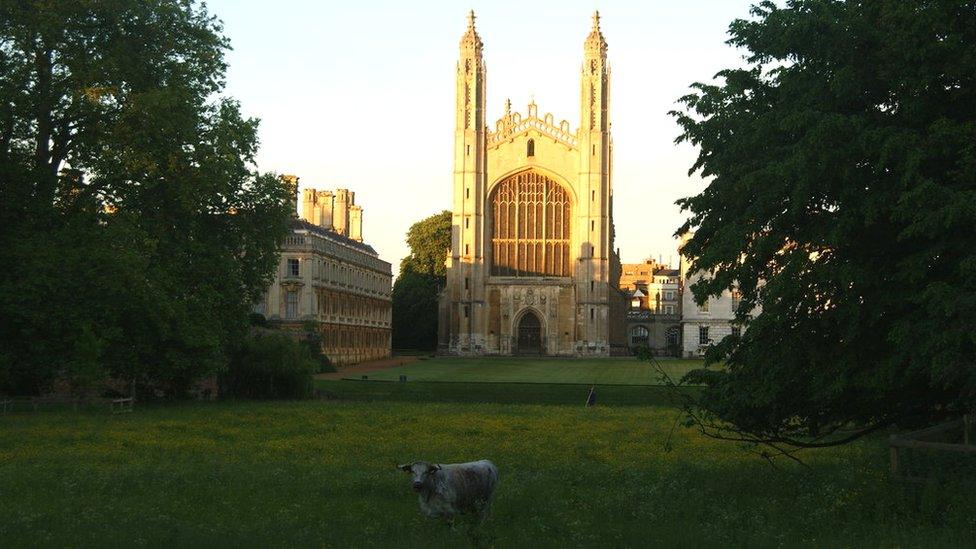
Land for grazing extends along The Backs where the River Cam flows past Cambridge University's colleges
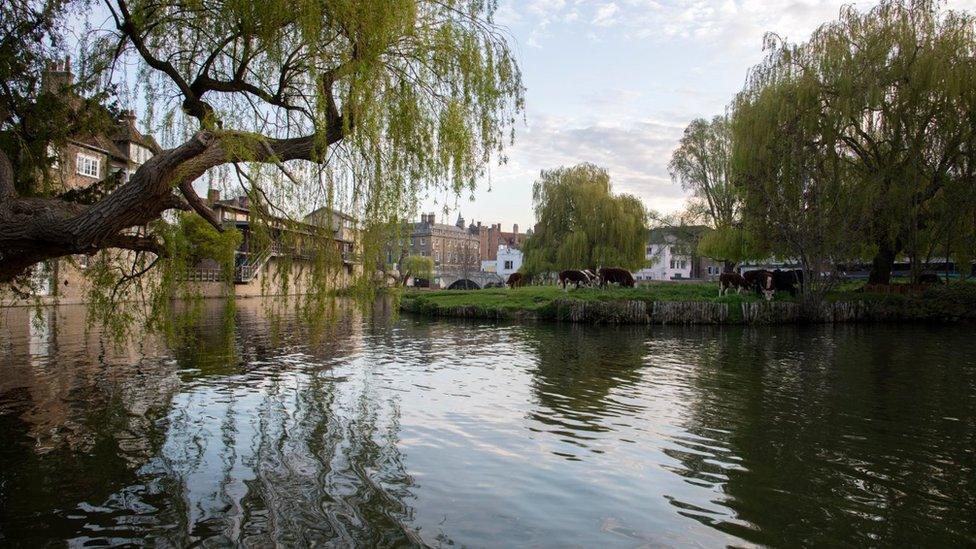
Grazing land extends from outside the city along the river to the Mill Pond, where cattle share the space with people including customers of The Mill pub
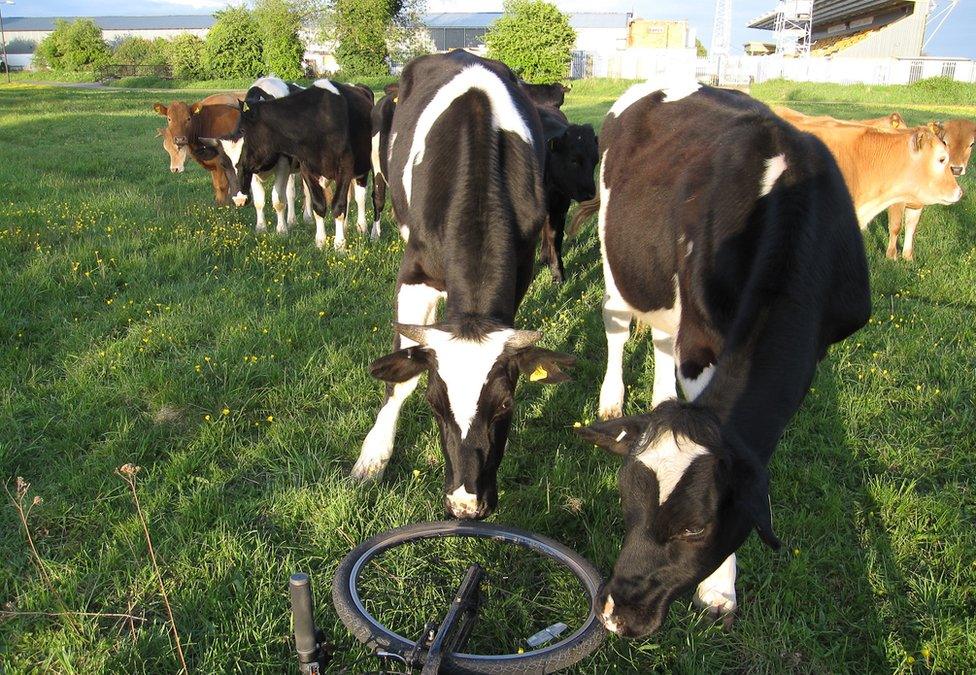
Cattle grazing on Coldham's Common - away from the city centre next to Cambridge United's Abbey Stadium
The council spokesman added that the grazing was a "significant and well-recognised contributor to the biodiversity of the city" and that Cambridge "remains committed to continuing this grazing custom and practice".
Katie Thornburrow, executive councillor for planning policy and open spaces, added: "There is definitely a choice to be made at the council budget meeting on this at our Thursday evening meeting and we will consider in detail the comments and issues raised by all the graziers."

Find BBC News: East of England on Facebook, external, Instagram, external and Twitter, external. If you have a story suggestion email eastofenglandnews@bbc.co.uk
Related topics
- Published2 June 2020
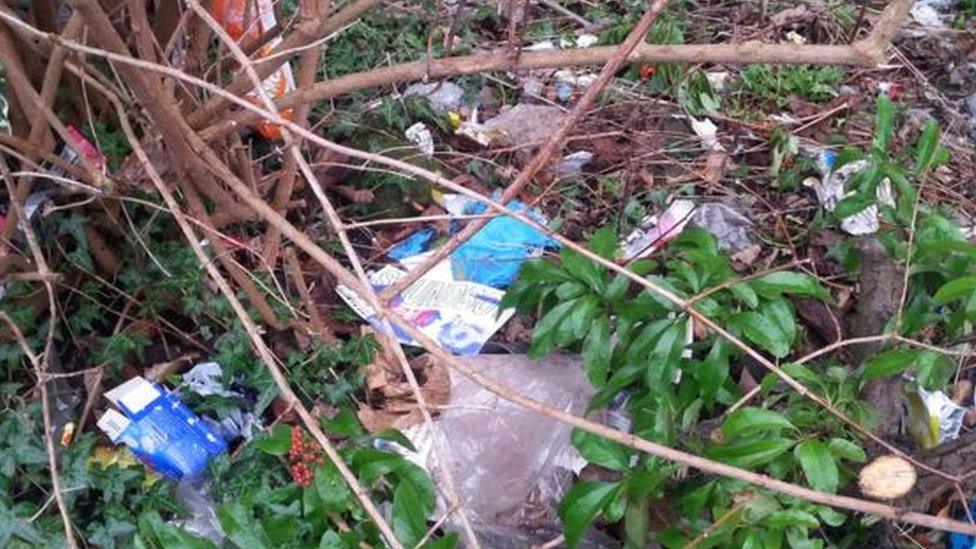
- Published11 March 2020
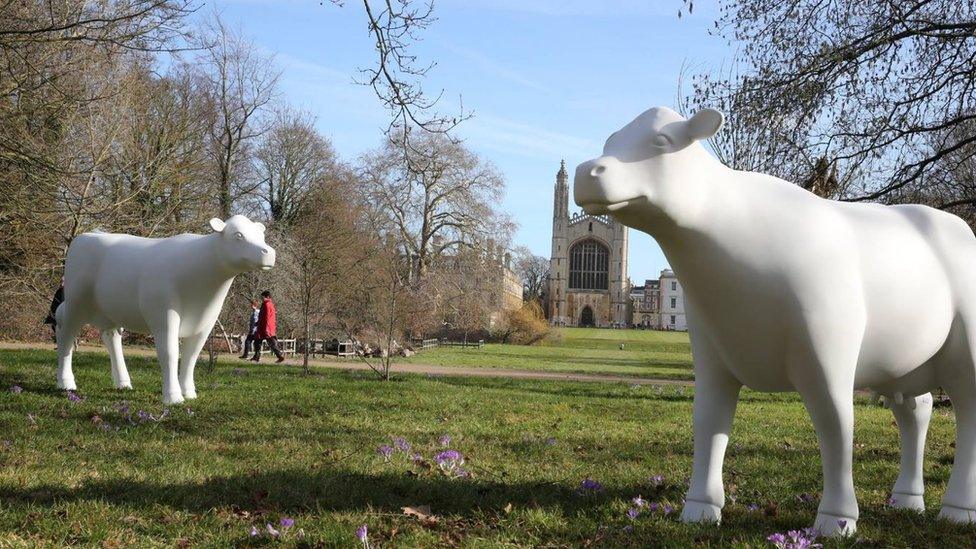
- Published29 April 2019
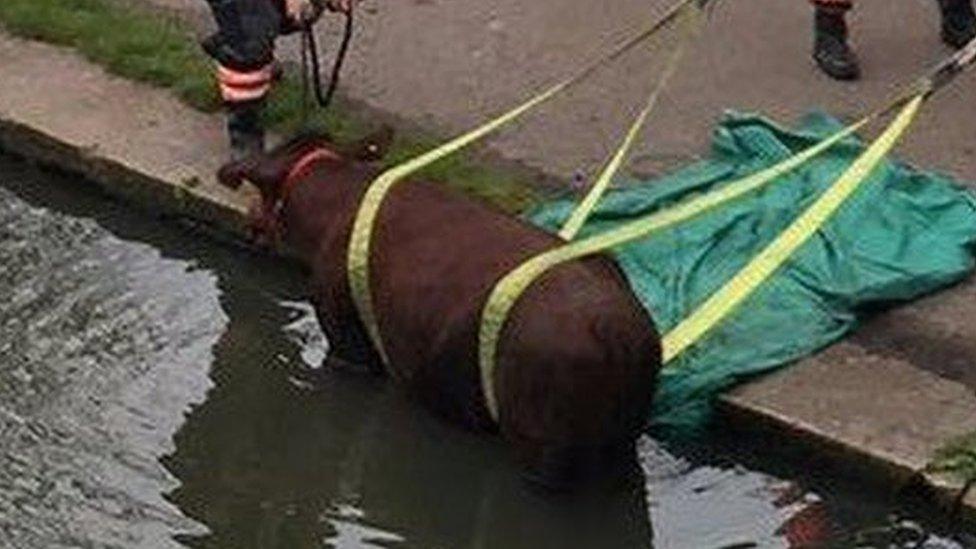
- Published15 September 2016
